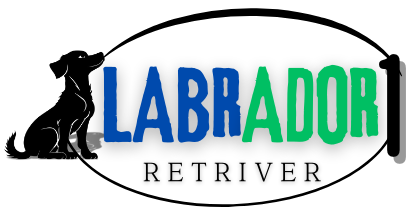Everything You Need to Know About the Charcoal Labrador Temperament
You’ve probably seen one and paused. That smoky, velvety coat. Those bright, curious eyes that seem to read your mind. There’s something mesmerizing about a charcoal Labrador—a dog that looks like a classic Lab but with a mysterious edge. Whether you’re researching your next four-legged family member or you’re already lucky enough to share your life with one, you’re here because you want to understand the charcoal Labrador temperament—what makes them tick, how they love, and why they behave the way they do.
This isn’t just another pretty dog. This is a loyal companion, a whirlwind of joy, and sometimes, a stubborn soul wrapped in a cloud-colored coat. Let’s dive into everything you need to know about their personality, care needs, and how to truly bond with this special breed.
Table of Contents
What Is a Charcoal Labrador?
Before you can understand how they think, it helps to understand what they are.
Charcoal Labradors are not a distinct breed; they are Labs in their purest form. A diluted form of the black coat is the source of the “charcoal.” The deep black is softened into that smoky silver-gray due to a recessive gene known as the dilution gene.
- Not a mix or hybrid
- Officially a black Labrador with diluted pigmentation
- Recognized by most breeders, though the American Kennel Club (AKC) classifies them under black Labs
While their color sets them apart visually, it’s important to know their core temperament traits are rooted in classic Labrador DNA—devoted, energetic, and incredibly people-centered.
Typical Charcoal Labrador Temperament Traits
When you bring a charcoal Lab into your life, you’re signing up for more than just a striking companion. You’re gaining a family-oriented best friend with personality traits that are hard to match.
Loyal to the Core
Charcoal Labs form deep bonds with you. Once that bond is built, it’s unbreakable.
- Follows you around the house
- Constantly seeks your attention or approval
- Protective, but not aggressive
This loyalty makes them perfect for homes where companionship is a priority—not just an accessory.
Smart as a Whip
Intelligence runs deep in this breed. You’ll find your charcoal Lab is quick to learn commands, spot patterns in your behavior, and even manipulate you a bit when they want something.
- Great at puzzle toys and mental games
- Learns tricks quickly
- excels in positions such as search and rescue, therapy, and service dog
With that smarts comes the need to keep them stimulated. A bored Lab is a destructive Lab.
Bursting with Energy
Be ready to match their stamina. Charcoal Labs thrive when they have daily physical outlets.
- Long walks or runs
- Fetch marathons
- Swimming (they love water)
If you’re someone who enjoys the outdoors or needs a workout buddy, this dog will become your shadow on every adventure.
Do Charcoal Labs Differ in Temperament from Other Labradors?

The idea that personality is influenced by color is among the most pervasive myths. But do black, yellow, or chocolate labs behave any differently than a charcoal lab?
Not inherently. Temperament is influenced more by environment, training, and genetics (beyond color) than anything else.
Here’s how they compare:
- Black Labs: Often chosen for hunting and field work; high drive.
- Yellow Labs: Popular in families and service roles; gentle and adaptable.
- Chocolate Labs: Known for being affectionate, though slightly more headstrong.
Charcoal Labs, like their counterparts, can swing toward gentle or headstrong depending on lineage and how they’re raised. So don’t overthink the color—focus on the breeder’s reputation, early training, and socialization instead.
Training Tips for Charcoal Labradors
A charcoal Lab’s enthusiasm can be a dream—or a challenge—depending on how you approach training. With the right approach, you’ll have a well-mannered, obedient companion.
Start Early
Training must begin early. As puppies, they are eager and receptive to new information.
- Begin crate training around 8 weeks
- Reinforce commands with positive rewards (treats, praise, play)
- Avoid punishment-based methods—they respond best to encouragement
Structure Socialization
The key to a well-adjusted Lab is exposure. Introduce them to:
- Other dogs (puppy playgroups help!)
- Children and different age groups
- Busy environments like parks or pet-friendly stores
Top Commands to Teach First
- Sit – Essential for calming energy
- Stay – Helps with impulse control
- Come – A lifesaver off-leash
- Drop it – For mouthy puppies
- Heel – Prevents pulling on walks
💡 Pro Tip: Use high-value treats like freeze-dried liver or peanut butter bites during training sessions to hold their focus.
Health and Wellness for Charcoal Labradors
Caring for your Lab’s physical health is just as vital as nurturing their temperament. Let’s look at what you should be aware of.
Common Health Issues
While Labs are generally sturdy, they’re prone to a few hereditary and lifestyle-related conditions:
- Hip and Elbow Dysplasia – Joint issues that can develop as they age
- Obesity – Labs love food; be mindful of portions
- Ear Infections – Due to floppy ears that trap moisture
Lifespan and Wellness Tips
Charcoal Labs typically live 10–12 years when well cared for.
| Age Range | Ideal Weight (Male) | Ideal Weight (Female) | Activity Needs |
|---|---|---|---|
| 8 weeks – 6 mo | 10–50 lbs | 8–45 lbs | High (daily play, learning) |
| 6 mo – 1 year | 50–70 lbs | 45–65 lbs | Very High |
| Adult (1–7 yrs) | 65–80 lbs | 55–70 lbs | High |
| Senior (8+ yrs) | Weight varies | Weight varies | Moderate (short walks) |
- Schedule annual checkups
- Keep up with vaccinations and deworming
- Monitor for any signs of joint stiffness or decreased activity
Ideal Diet and Nutrition
Feeding your charcoal Lab correctly is non-negotiable. Their temperament and energy depend heavily on what fuels them.
What to Look for in Food
- Protein-first ingredients (like chicken, lamb, or fish)
- Omega-3 fatty acids for coat and joint health
- Moderate carbs for sustained energy
- Avoid food with corn, soy, and artificial fillers
Dog Food Comparison Table
| Brand | Age Group | Key Benefits | Grain-Free? |
|---|---|---|---|
| Orijen Puppy | Puppy | High protein, DHA for brain growth | No |
| Blue Buffalo Life | Adult | Healthy weight, good fiber content | Yes |
| Hill’s Science Diet | Senior | Joint support, digestive-friendly | No |
Feed the right portions and don’t cave into the puppy dog eyes—Labs will eat long after they’re full.
Living With a Charcoal Labrador

Bringing one into your life means making space for their energy and devotion.
Best Home Environments
They adapt well to homes with:
- A backyard or nearby parks
- Active owners who hike, run, or walk daily
- Families or individuals home often—Labs hate being alone too long
Grooming Routine
- Brush 2–3 times per week
- Expect seasonal shedding (spring and fall)
- Bathe every 4–6 weeks or as needed
- Clean ears weekly to prevent infections
Adaptability
Charcoal Labs adjust well to:
- Car rides
- New environments
- Children and pets (with supervision)
But be aware—they’re sensitive to harsh tones and lack of attention. Keep communication and affection strong.
Is a Charcoal Labrador Right for You?
Before making the leap, ask yourself:
Pros:
- Incredibly loyal and loving
- Great with kids and other pets
- Easy to train and eager to please
- Gorgeous, unique coat that turns heads
Cons:
- Needs 1–2 hours of activity daily
- Sheds heavily
- Prone to joint issues and weight gain
- If left alone too frequently, they may develop separation anxiety.
If you’re looking for a lifelong adventure buddy, a charcoal Lab will be all-in. If you prefer a more laid-back lifestyle, you may want to consider a breed with lower energy demands.
Frequently Asked Questions (FAQ)

Are Charcoal Labs more aggressive than other Labs?
No. Like their cousins who are yellow, black, or chocolate, they are also kind and loving.
Do Charcoal Labs bark a lot?
Not typically. They’ll bark when excited or bored but aren’t considered a vocal breed.
How much exercise do they need?
At least 60–90 minutes per day—split between walks, play, and mental stimulation.
Can they live in apartments?
While not ideal, it is feasible with adequate outdoor time. For them, a home with a yard is ideal.
Are Charcoal Labs good with cats?
Yes—especially when socialized young. Labs generally coexist peacefully with other animals.
Conclusion: The Shadow That Stays By Your Side
There’s something unforgettable about a charcoal Lab. It’s not just their rare coat—it’s the way they connect with you, the way they always seem to know what you need, and the loyalty that never fades.
If you’re ready to commit to a life filled with tail wags, muddy paws, and unconditional love, then a charcoal Labrador might be your perfect match. All they ask in return is your time, your consistency, and a lot of belly rubs.







